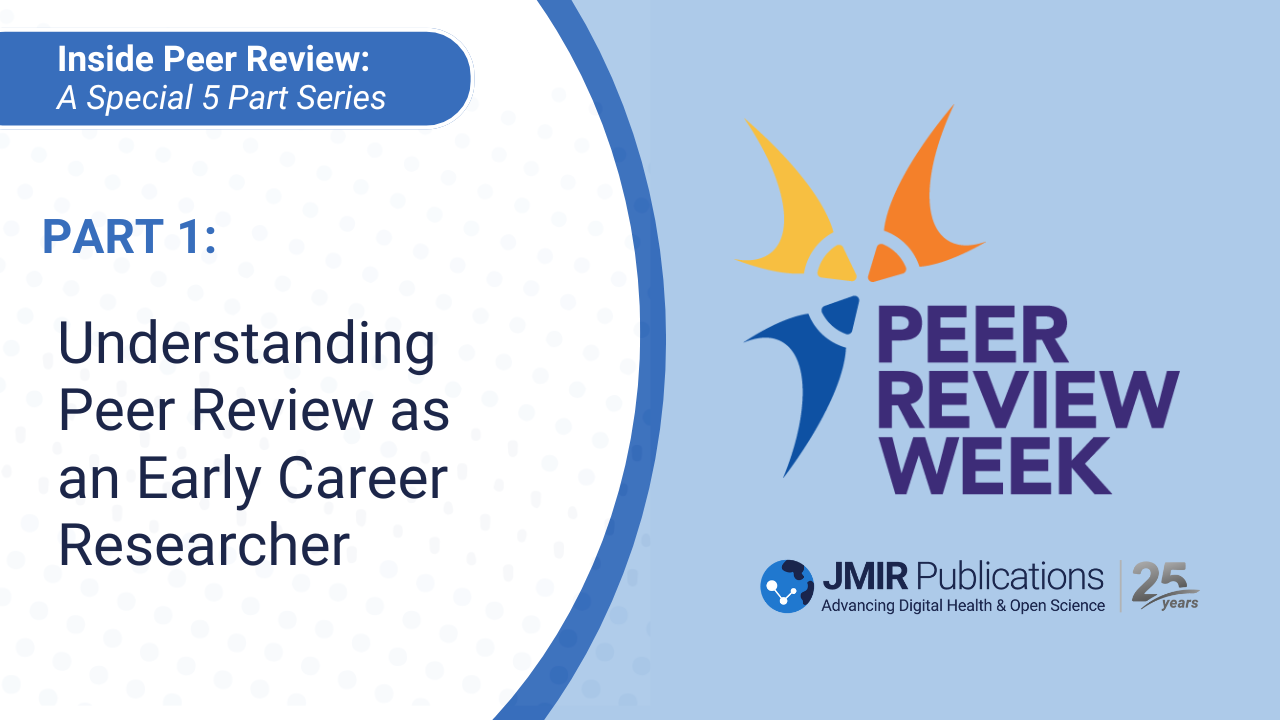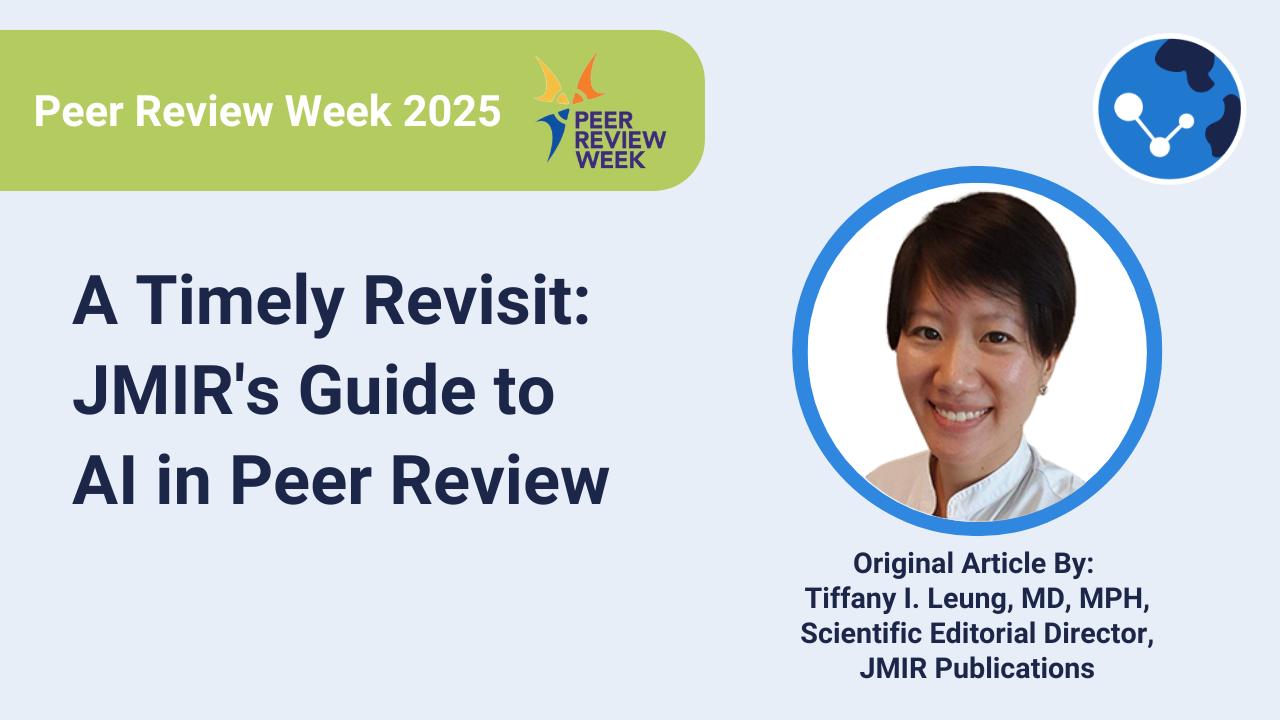Understanding Peer Review as an Early Career Researcher

Welcome to a special JMIR Publications blog series: Inside Peer Review: A Special 5 Part Series.
Over the course of Peer Review Week, we’ll dive into essential topics for peer reviewers, including insights for early career researchers, the art of high-quality reviews, inclusive language, ethical considerations, and the impact of AI.
Stay tuned each day for valuable tips and expert perspectives that will enhance your understanding of the peer review process.
Understanding peer review as an early career researcher
Becoming a peer reviewer is an invaluable experience for any early career researcher. Not only do you get to play a critical role in disseminating knowledge, but you also stand to gain significant professional growth and learning opportunities.
Read on to learn insights into the peer review process from the perspective of an early career researcher, including the dual role of a peer reviewer, the initial challenges faced, and the immense benefits that come with it and practical tips on how to approach the review process effectively.
The dual role of a peer reviewer
- Balancing critique and learning
Being a peer reviewer involves a delicate balance between offering constructive criticism and absorbing new knowledge. Early career researchers often enhance their understanding of the field by reviewing manuscripts. You're improving someone else's work and gaining insights that could benefit your research. - Enhancing scholarly skills
Engaging in peer review sharpens your critical thinking and analytical abilities. You'll be evaluating methodologies, scrutinizing data, and assessing conclusions. This rigorous exercise enhances your scholarship, making you a better researcher. - Building professional reputation
Contributing to the peer review process can significantly boost your professional reputation. It positions you as a knowledgeable and respected member of the academic community. Your insightful feedback can make you a go-to person for future reviews and collaborations. - Giving back to the academic community
Becoming a peer reviewer also gives an opportunity to pay it forward and contribute to your academic community. It's a chance to be an active participant in your space, helping to shape research outcomes and impact.
Initial challenges faced by new reviewers
- The pressure to provide constructive feedback - one of the main challenges for new reviewers is the pressure to provide balanced and constructive feedback. Being honest and respectful is essential, offering suggestions to improve the manuscript.
- Upholding academic integrity - maintaining academic integrity is crucial. This means being unbiased, thorough, and ethical in your review. It's a responsibility that can feel daunting initially, but it becomes more manageable with practice and guidance.
- Managing time effectively - balancing peer review demands with other academic responsibilities can be challenging. Effective time management strategies are crucial to fulfilling your reviewer duties without compromising other work areas.
Practical tips for navigating the review process
- Approach each review methodically
Start by thoroughly reading the manuscript to understand its primary objectives and contributions. Then, dissect each section methodically. This approach ensures you don't miss important details and can provide comprehensive feedback. - Focus on constructive criticism
When providing feedback, aim to be constructive. Highlight what works well and offer specific suggestions for improvement. This balanced approach helps authors improve their work without feeling demoralized. - Seek guidance and mentorship
Don't hesitate to seek guidance from more experienced reviewers or mentors. Their insights can provide valuable context and help you refine your reviewing skills.
The supportive environment of JMIR Publications
- Clear guidelines for new reviewers
JMIR Publications is known for its supportive environment, especially for new reviewers. They provide clear guidelines that help you understand what is expected and how to approach your review effectively. - Transparent review process
Transparency is a hallmark of JMIR Publications' review process. Understanding the steps and criteria used in the evaluation process helps you align your feedback with the journal's standards.

- Nurturing professional growth
By participating in the peer review process with JMIR Publications, you are not just contributing to the field but also nurturing your professional growth. The experience and insights gained here are invaluable.- Benefits of engaging with peer review
- Contributing to the field
- Personal and professional development
- Networking opportunities
Conclusion
Becoming a peer reviewer as an early career researcher offers many professional and personal growth opportunities. While the initial challenges can be daunting, the rewards are well worth it. By engaging in the peer review process, you advance your field and enhance your reputation.
Subscribe to Our Blog Updates!



